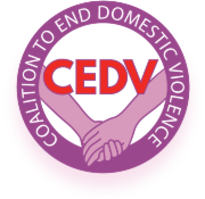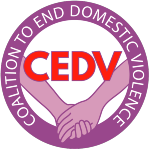Minnesota DV Establishment Goes To Bat In Favor Of Slander And Libel
Robert Franklin, Esq,
Member, National Board of Directors, National Parents Organization
March 8, 2018
To the great indignation of the domestic violence establishment in Minnesota, a state appellate court has ruled that individuals claiming to be victims of DV and DV shelters may not libel or slander alleged perpetrators. I first wrote about the case here. I did so because, amazingly enough, the trial court in the case of Maethner vs. Jorudruled that slander and libel regarding DV are protected by qualified immunity. Stated another way, because there’s a public policy against domestic violence, anyone can lie about anyone else regarding domestic violence and be free of civil liability for doing so. Make sense?
No, it didn’t make sense when the court issued its opinion and it doesn’t make any now, but, until now, Kurt Maethner simply had to sit back and let his friends, relatives, neighbors and co-workers read what his ex, Jacki Jorud said about him. All of that he stoutly maintains was untrue.
Kurt and Jacki were married for a time and then divorced. During their divorce, Jacki never said a word about domestic violence although she did contact an organization called Someplace Safe that provides services to domestic violence victims. Someplace Safe once sent a representative to attend a court hearing, but the divorce was granted and the two went their separate ways.
That lasted almost four years.
On May 9, 2014, Someplace Safe celebrated its 35th anniversary at a fundraising banquet and gave a “Survivor Award” to Jorud as a “survivor of domestic abuse.” The certificate stated that the award was given to “Jacki Maethner Jorud for empowering yourself and inspiring others to stand against violence.” Someplace Safe issued a press release about the banquet and the award recipients and posted statements about the award on its Facebook page, mentioning Jorud by name and including a photograph of her receiving the award as a survivor of domestic violence. Regional newspapers republished some of the information from the press release.
After the banquet, Someplace Safe asked Jorud to write about “surviving domestic violence” and “thriving through recovery” for an upcoming newsletter. The newsletter was seven pages; the last page was a donation request. Jorud’s article was titled, “Jacki’s Story” and approximately one page in length. In his submissions to the district court and on appeal, Maethner points to the following language from the article in support of his claims:
“I was asked to write a short article celebrating the fact of not just surviving domestic violence, but thriving through recovery.”
“Getting out of an unhealthy, threatening and dangerous relationship is hard. It is scary.”
“Just because you have left, or the divorce is final, . . . doesn’t mean the slate is []wiped clean and you can just start a new life.”
“I don’t know if there will ever be a time when I can be certain I am no longer being stalked and watched.”
“I didn’t want to live in a constant state of fear.”
“I didn’t want daily conflict and fighting.”
Jorud signed the article “Jacki Maethner Jorud.”
Now, Jacki never mentioned Maethner, but he points out that his name is unusual and that reasonable people who know him would connect Jacki’s claims with him. But the trial court ignored him and the distress his ex and Someplace Safe had cause him and ruled that, whether true or false, slanderous or not, Jacki was free to say what she said and Someplace Safe was free to publish her remarks and to refer to her as a “survivor” of DV.
That opinion never made sense and the appellate court’s decision underlines the fact. After all, we have public policies against all sorts of things about which it is not legally acceptable to slander or libel another person. We don’t approve of murder, but it’s not OK to call your neighbor a murderer if he/she’s not one. It’s an obvious fact, but one that escaped the trial court.
Not only that, but the appellate court also said that Someplace Safe had a duty to investigate Jacki’s claims before publishing them. Failure to do so could result in civil liability.
So it’s back to the trial court for Kurt Maethner, his ex and Someplace Safe. He’ll now get to present his case to a jury and learn what they think about the behavior of Jacki and Someplace Safe.
Meanwhile, Minnesota’s DV establishment isn’t happy. To them slander, libel and defamation of character should be all in a day’s work just as long as a person claims to have been abused. To them, actually finding out whether a person is telling the truth about being a victim of violence is a burden no organization should have to bear. The consequences to the innocently defamed?They’re not concerned in the least.
In the post-#MeToo era, we implore society to believe women. But the Minnesota Court of Appeals has now explicitly held that believing women and encouraging victims to come forward for their own safety and healing through outreach and advocacy will open victims and organizations up to defamation liability. This decision is quite literally endangering women’s lives and perpetuates the silencing of survivors. In conjunction with the overwhelming societal, emotional, and financial burdens victims of domestic and sexual violence face, legal barriers such as this case further chill the speech of survivors.
No, actually all the case says is that lying about others is, as it has been for many centuries, a violation of civil law. That the DV establishment should go to bat for slander, libel and defamation speaks volumes about its ethical standards.
And if you really want “society to believe women,” you’ll do exactly as the Court of Appeals instructs. You’ll make sure that statements you place into the stream of public discourse are in fact true. All too often, they’re not. And every time they’re not, they damage true victims of crime and violence.
The DV establishment still doesn’t get it. I wish I could say I’m surprised.
Source: https://nationalparentsorganization.org/blog/23920-minnesota-dv-establishment-goes-to-bat-in-favor-of-slander-and-libel


